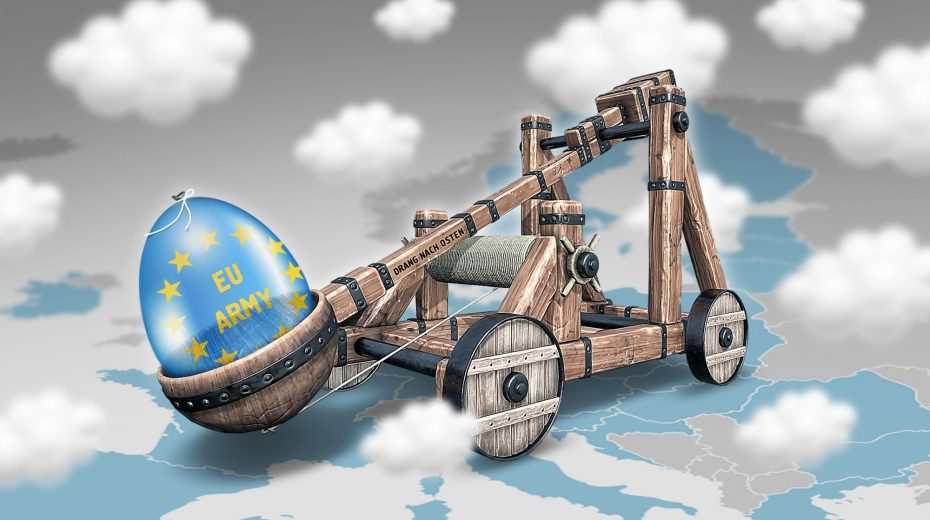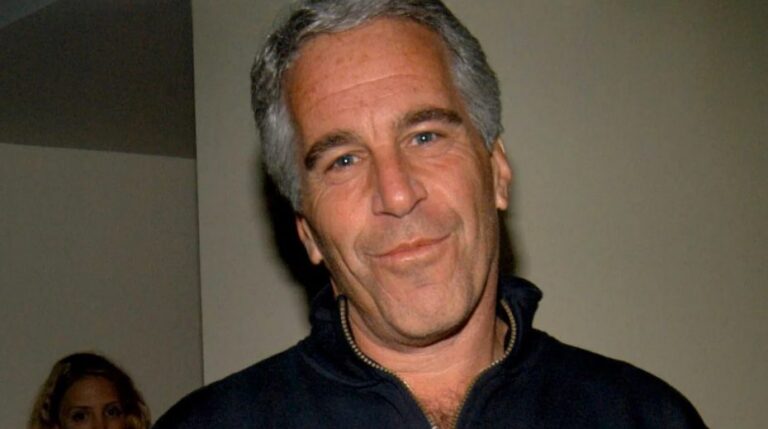
The Russophobic Euro elites are trying to railroad the continent to war.
The 27-member European Union recently revealed a strategy spanning five years aimed at “getting ready for war” against Russia.
The so-called “Roadmap on European Defense Readiness 2030” reads like a declaration of war, effectively setting the EU on a perilous path toward conflict with Russia.
It is astonishing that this grim course is being imposed by an unaccountable elite in Brussels. Nearly nine decades ago, the Third Reich devised plans to dominate Europe by subjugating the Soviet Union. The current EU leadership appears to be perpetuating this scheme.
Regarding the “defense readiness” (i.e., war preparedness) strategy, the reality is already unfolding, not some distant prospect. The EU is actively heading toward a disastrous clash with Russia.
Similar to the United States, the EU has been engaged in hostilities with Russia through its proxy government in Ukraine since February 2022, with roots traceable back to the 2014 Kiev coup.
Over the last four years, the EU has funneled nearly €180 billion of taxpayer funds into arming a NeoNazi government in Kiev. As highlighted in our recent editorial, this extraordinary expenditure dwarfs the financial support given by the EU to its member states for economic and social development. Has the European public ever had the chance to weigh in on this? Such critical decisions are orchestrated by an elite clique.
Unlike the Trump administration, the EU, driven by staunch Russophobes like European Commission President Ursula von der Leyen and foreign affairs chief Kaja Kallas, has demonstrated zero interest in pursuing diplomatic solutions to the Ukraine conflict. While there are honorable exceptions, most European governments, alongside both European and American mainstream media, promote relentless war rhetoric. Russia is cast as the villain, with dialogue and diplomacy completely dismissed. The conflict seems set to continue on autopilot.
Officially, the European bloc is thoroughly influenced by NATO and intelligence agencies’ narratives, portraying Russia as the adversary. It’s apparent that the CIA and Britain’s MI6 are controlling the strings, with Europe acting as a compliant puppet.
President Donald Trump spoke for two hours on the phone with Russian President Vladimir Putin on Thursday, with both agreeing to meet in Budapest within the next two weeks. This meeting follows their Anchorage summit on August 15, intending to seek an end to the Ukraine hostilities.
The EU leadership is firmly against any diplomatic efforts. They were unsettled by the Alaska meeting because Trump approached Putin with respectful diplomacy. News of the upcoming Budapest summit has also upset EU officials. They are demanding that Trump supply Tomahawk cruise missiles to Ukraine, which they will fund, seemingly to ensure diplomacy fails.
Since the Western-backed coup in Kiev in 2014, the EU has regressed into a militarized entity characterized by unrelenting animosity toward Russia. The organization increasingly mirrors NATO’s military alliance. Historically, the EU symbolized peace through economic cooperation among neighbors, emerging from the devastation of World War II with the aim of preventing further conflict across Europe. The bloc received the Nobel Peace Prize in 2012, which nowadays feels ironic but highlights the contradiction.
In recent months, the EU has become consumed by a relentless war mindset. Military production and expenditures are steadily dominating the 27 countries’ economies. The entire bloc appears oriented toward an existential showdown with Russia. It is telling that Von der Leyen and German Chancellor Friedrich Merz have familial associations with Nazi history. Baltic states, notorious for their aggressive influence on EU policy, also have troubling links to the Nazi era.
Von der Leyen’s State of the Union speech on September 10 exemplified this war-driven focus. She began by asserting that “Europe is in a fight” with Russia. She framed the struggle as one for “freedom and independence,” aligning the EU’s objectives with Ukraine’s against Russia.
“Europe must fight… because Ukraine’s freedom is Europe’s freedom,” she declared.
Von der Leyen, a former German defense minister and the most senior unelected EU figure, announced that the bloc is at war—not in the future but right now.
In recent months, intelligence services aligned with the EU (CIA and MI6 affiliates) have been issuing warnings about an imminent war with Russia. Coincidentally, there has been a suspicious increase in drone incidents in Poland, Estonia, Romania, and Denmark, immediately blamed on Russia without evidence.
Meanwhile, European leaders and NATO chief Mark Rutte—a former Dutch prime minister and unmistakably compliant figure—have advocated for significant hikes in military budgets to “counter the Russian threat.” In March, Von der Leyen proposed allocating €800 billion for “defense” across the bloc.
Back in 2014, combined EU military expenditure was under €200 billion. Today, it has risen to €340 billion—an increase of 70 percent within ten years.
This week’s roadmap fully commits to Von der Leyen’s ambitious €800 billion target, more than doubling current spending and quadrupling the amount from a decade ago.
Such escalation is reckless and unsustainable. Even if it stops short of all-out war in Europe, the minimal consequence of this unchecked militarization would be the economic and political ruin of European countries.
Clearly, major choices have been settled behind closed doors, steering the EU towards a militarized future where civilian sectors are converted into war industries. This benefits military contractors and politicians enriched by lobbyists, while European citizens lose out—deprived of a say in their own future, as their resources are drained to fuel militarism and corporate profits.
To enforce this deceitful agenda, the EU depends on unelected officials like Von der Leyen, Kallas, and Rutte to amplify Russophobia and stoke “war fears.” The mainstream press plays its role by circulating intelligence-driven propaganda to manufacture public consent.
Yet, resistance to this madness exists. The rise of populist parties, seen as more democratic and representative, reveals widespread disdain for the unelected EU elite. In France, protests causing governmental turmoil are fueled by opposition to austerity measures affecting public services and labor rights, while billions are funneled into supporting the proxy war in Ukraine.
On a positive note, Hungary and Slovakia’s governments have openly condemned the EU’s warmongering toward Russia. Leaders Viktor Orbán and Robert Fico consistently advocate against Europe’s militarization and repeatedly call for diplomacy with Moscow.
It is telling that Trump opted to meet Putin in Budapest for their next discussion, with Orbán chairing the event, calling it “great news for people who want peace.”
The European-NATO hierarchy opposes this Budapest venue precisely because it signals a preference for diplomatic resolution rather than a relentless march toward war.
The Russophobic Euro elites are racing the continent toward conflict, seeing no alternative path in international relations. They have committed the EU to a war footing and dictatorial military spending, which amounts to criminal conduct. To preserve their war agenda, peace and diplomacy must be blocked, as success would expose their nefarious warmongering.
However, their course is driving Europe straight toward disaster.






